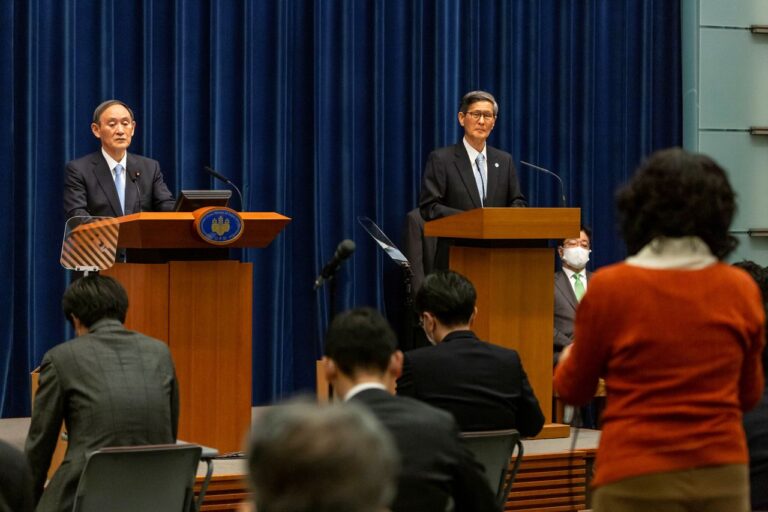
(Reuters) – Japan extended a state of emergency in the Tokyo area by two weeks on Friday to try to combat COVID-19, prompting a “heartfelt apology” by Prime Minister Yoshihide Suga.
The state of emergency had been set to end on March 7. But 4-1/2 months before Tokyo is due to host the Olympic Games, Suga said there was a need for caution because of the threat from new coronavirus variants and the possibility of cases rising again.
“I am deeply sorry at not being able to lift the state of emergency by the previously-promised March 7. I offer my heartfelt apology,” Suga told a news conference.
Under the state of emergency in Tokyo and three surrounding prefectures, the government has requested restaurants and bars close by 8 p.m. and stop serving alcohol an hour earlier.
People are also asked to stay home after 8 p.m. unless they have essential reasons to go out.
Tokyo, Chiba, Kanagawa and Saitama prefectures, which make up 30% of Japan’s population, sought the extension because the number of new coronavirus cases had not fallen enough.
Suga said conditions had improved but there were still problems such as pressure on the medical system in the Tokyo area and cases could still rebound. Variant strains of the virus have been found in 19 of Japan’s 47 prefectures, he said.
“In order to protect your lives and livelihood, and to take back a secure and lively life, I ask for your cooperation from the bottom of my heart,” Suga said.
Tokyo Governor Yuriko Koike told a videoconference of governors of the affected area that the extension was essential.“We can’t have things rebound now, this is a really important time, and I think we all understand this,” she said. “We’ll keep in close contact with each other and beat the virus.”






